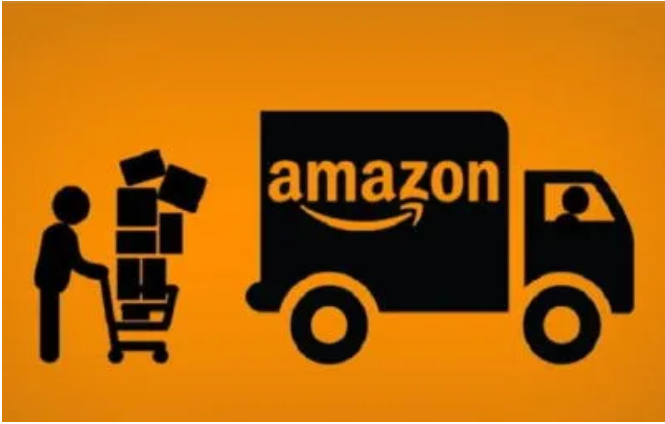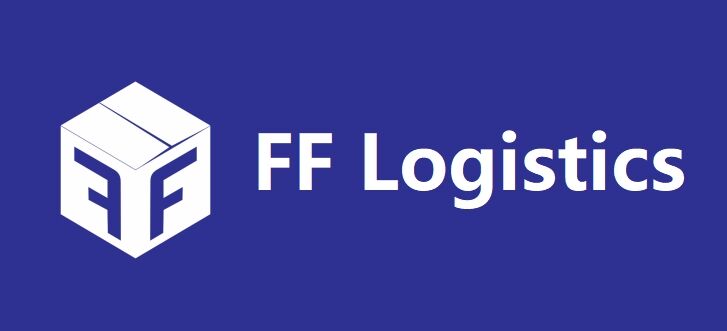What Is China Fulfillment?
Definition and Core Components
China Fulfillment is a process that facilitates receiving, processing, and delivering orders from international customers through Chinese suppliers. It encompasses integral components such as inventory storage, order processing, Shipping logistics, and customer service. These elements collaborate to enhance the overall efficiency of e-commerce supply chains, ensuring that products reach customers swiftly and intact. Furthermore, the integration of technology in China Fulfillment—like automated inventory management systems and tracking software—provides real-time updates, thus improving the customer experience and enabling businesses to manage operations effectively.
How It Differs from Traditional Fulfillment
China Fulfillment significantly deviates from traditional fulfillment models by leveraging a global supply chain, which is more adept at handling international e-commerce demands. Unlike conventional methods that often necessitate substantial initial investments in warehousing, China Fulfillment typically utilizes third-party logistics services, thereby reducing overhead costs. Moreover, the flexibility offered by China Fulfillment allows businesses to scale operations rapidly in response to market demands. This adaptability is crucial for businesses seeking to maintain competitive advantage in the fast-paced global marketplace, making China Fulfillment a more scalable and cost-effective solution.
Key Advantages of China Fulfillment for E-commerce
Cost-Effectiveness and Competitive Pricing
Leveraging China fulfillment for e-commerce offers significant cost advantages. Operating in China generally allows for lower manufacturing and shipping expenses, effectively reducing operational costs for businesses. These savings can subsequently be translated into competitive pricing strategies, attracting a larger customer base. Moreover, numerous reports highlight that utilizing China fulfillment services can cut operational expenses by as much as 30%. This reduction in overhead costs is a fundamental advantage for businesses striving to provide affordable pricing without compromising on quality.
Access to Global Markets and Scalability
China fulfillment grants e-commerce businesses the ability to efficiently penetrate global markets and access a broad spectrum of consumers worldwide. This model inherently supports scalability, enabling companies to expand operations with minimal capital investment. The potential for seamless adaptation to new markets is particularly beneficial for businesses experiencing rapid growth, enabling them to meet customer demands swiftly and efficiently. By embracing China fulfillment, businesses can effortlessly transition into new international territories, expanding their consumer reach.
Streamlined Shipping and Faster Delivery
One of the key advantages of China fulfillment is its capacity to enhance shipping efficiency and expedite delivery processes. Partnering with reliable logistics providers ensures that businesses can offer faster shipping options, thus reducing delivery times significantly. This optimization of transportation routes and methods contributes to a streamlined order fulfillment process. According to logistics experts, implementing effective China fulfillment strategies can reduce delivery timeframes from weeks to mere days, greatly enhancing customer satisfaction and loyalty.
The China Fulfillment Process Explained
Step 1: Sourcing and Supplier Coordination
The first step in the China fulfillment process is sourcing and coordinating with reliable suppliers. Platforms like Alibaba or Global Sources can be invaluable for identifying reputable suppliers. These platforms provide a starting point for thorough vetting to ensure suppliers meet international quality and compliance standards. Supplier coordination is essential, as it ensures the products sourced are of high quality and meet safety regulations. Establishing robust communication channels early on can help mitigate potential issues and streamline the entire sourcing process, thereby enhancing efficiency and reducing risks.
Step 2: Warehousing and Inventory Management
Warehousing is a critical component of the fulfillment process, involving the strategic storage of products to ensure quick and effective shipping. Choosing locations that enable shorter transit times can notably improve delivery efficiency. Alongside this, efficient inventory management systems, often driven by technology, are essential to maintain appropriate stock levels and anticipate demand. These systems help prevent both overstock and stockouts, enabling smoother operations. Studies have indicated that businesses utilizing sophisticated inventory systems have reported up to a 50% improvement in inventory turnover, emphasizing the importance of incorporating technology in inventory management.
Step 3: Order Processing and Packaging
Order processing is a key step where customer orders are received, checked for details, and prepared for shipment. An efficient order processing system can significantly enhance customer satisfaction by ensuring prompt and accurate service. Likewise, the packaging process is crucial not just for the protection of goods in transit but also for brand image and environmental responsibility. Increasingly, businesses are turning to eco-friendly packaging materials to align with sustainability goals and improve their brand's market perception, reflecting a commitment to both quality and environmental stewardship.
Step 4: International Shipping and Customs
The final step in the China fulfillment process involves managing international shipping and customs, which requires navigating complex regulations and diverse customs requirements across different countries. Collaborating with experienced customs brokers can drastically streamline this process, ensuring compliance and reducing the likelihood of shipment delays. Additionally, proactive management of customs duties and taxes is vital as it helps expedite the delivery process, enabling goods to reach customers more swiftly and enhancing overall service satisfaction. Understanding these intricacies is fundamental for e-commerce businesses aiming to maximize their global reach.
Choosing the Right China Fulfillment Partner
Critical Factors to Evaluate (Expertise, Technology, Support)
Choosing the right fulfillment partner is crucial for any e-commerce business, especially when dealing internationally. When evaluating potential partners, prioritize their expertise in e-commerce logistics and the specific needs of your product category. A partner with a deep understanding of your industry can better handle nuances related to these products. Technology capabilities are another key factor; ensure that the potential partner has robust technology for integration with inventory management systems, which is essential for maintaining operational efficiency. Lastly, assess the support services offered by the partner, as responsive customer service is critical for addressing any concerns that may arise and ensuring a smooth, continuous operation.
Integration with E-commerce Platforms
Integration capabilities with popular e-commerce platforms are a must-have for any fulfillment partner. Seamless integration with systems like Shopify, WooCommerce, or Magento is vital for providing real-time updates on inventory status and order fulfillment, ultimately enhancing customer experience. Such integration not only helps in maintaining accurate stock levels and order tracking but also provides valuable insights through sales data analysis, leading to more informed decision-making. The ability to process real-time data can significantly improve customer satisfaction by providing timely updates and reducing the chances of errors and miscommunications.
Transparency in Tracking and Reporting
Transparency in tracking and reporting is an essential component of a successful partnership with a fulfillment provider. A partner that offers clear tracking capabilities ensures that shipments are monitored efficiently, providing customers with timely updates. This not only improves trust between businesses and their clients but also enables businesses to make informed, data-driven decisions based on accurate reporting metrics related to inventory levels and fulfillment performance. Ultimately, this transparency fosters stronger business relationships, paving the way for improved collaboration and success in the market. Businesses should seek partners that prioritize transparency to benefit from a more reliable and efficient supply chain.
Overcoming Challenges in China Fulfillment
Navigating Customs and Compliance
Navigating customs and compliance in China fulfillment can be daunting due to intricate regulations. Firms must stay informed About the latest customs requirements to avoid costly delays. Regular updates on evolving policies ensure that shipments continue to flow smoothly. Engaging experienced customs brokers is essential, as they possess the knowledge necessary to manage compliance and sidestep potential pitfalls associated with international shipping. Experts also recommend conducting periodic audits of fulfillment processes; these inspections are crucial to maintaining adherence to regulatory changes and ensuring seamless operations.
Mitigating Language and Cultural Barriers
Language differences and cultural nuances often pose challenges in China fulfillment. Hiring bilingual staff can significantly ease communication, ensuring smooth interactions between business partners and suppliers. Understanding cultural differences in business practices is equally important for building strong rapport with Chinese counterparts. By recognizing these nuances, businesses can foster positive relationships and negotiate more effectively. It is also beneficial to train staff on cultural sensitivity, which can improve decision-making processes and lead to successful partnerships.
Ensuring Quality Control and Consistency
Ensuring quality control and consistency in fulfillment operations is critical to meeting customer expectations and industry standards. Implementing stringent quality control measures can secure product integrity and enhance customer satisfaction. Regular inspections and audits of suppliers are imperative to maintaining consistent quality across shipments. Establishing a well-defined returns policy can further address any quality concerns, providing clients with confidence in the refund process. This approach not only protects the brand reputation but also fosters trust between sellers and buyers.
FAQ Section
What is China Fulfillment?
China Fulfillment is a process that handles receiving, processing, and delivering orders from international customers through Chinese suppliers, enhancing e-commerce supply chain efficiency.
How does China Fulfillment differ from traditional fulfillment?
China Fulfillment differs by utilizing a global supply chain and third-party logistics, reducing overhead costs and offering scalability compared to traditional models.
What are the advantages of using China Fulfillment for e-commerce?
Advantages include cost-effectiveness, access to global markets, streamlined shipping, and faster delivery.
What are the steps in the China Fulfillment process?
The process includes sourcing and supplier coordination, warehousing and inventory management, order processing and packaging, and international shipping and customs.
What factors should be evaluated when choosing a China Fulfillment partner?
Evaluate expertise, technology capabilities, integration with e-commerce platforms, and transparency in tracking and reporting.
How are challenges like customs compliance addressed in China Fulfillment?
Challenges are addressed by staying updated on regulations, engaging customs brokers, and conducting audits of fulfillment processes.



